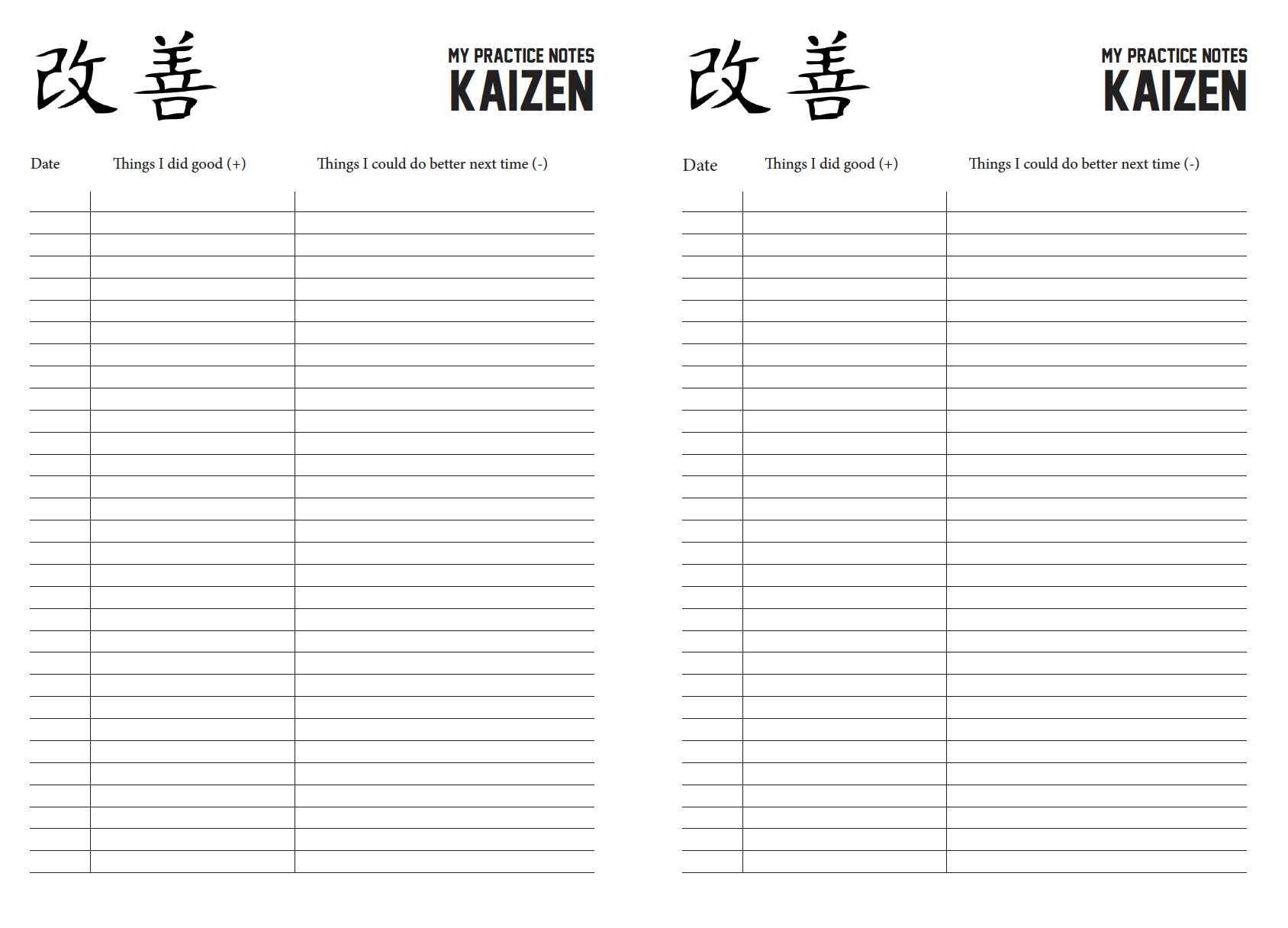← Back to News

The Conscious Sports Parent: Part 3
07.04.2020
Being a Conscious Sports Parent in Practice
The gold investment in becoming a supportive sports parent seems to boil down to becoming more conscious of your own behavior: in and the around the sport and learning how to regulate your thoughts, emotions and physiology in order to embody a supportive presence throughout.
Similar to the child practicing to become a more proficient player, being a sports parent seems to be a challenging endeavour that holds within itself many opportunities for self-development. It is much comparable to the training of a skill that needs to be crafted and worked on by putting in the time and effort to monitor and re-orient one’s actions and responses.
What would be the main quality of a conscious sports parent?
In general it seems to be someone who observes in his child (and equally those of others) what they bring to playing the game – their intentions and attitudes in the dynamics of the games – and avoid looking with the eyes of the evaluating accountant by commenting solely on performance outcomes such as winning, scoring x amount of points, etc.
Communication expert Marshall Rosenberg speaks of the de-humanising effect of thinking of a child in terms of what he is. Therefore a language shift needs to be made and the conscious sports parents understands that language needs to shift from evaluation to observation.
What kind of questions does a conscious sports parent ask?
Above you have read on the continuum of pressuring and supportive communication. Now it is time to give you some examples.
Examples of more pressuring communication and how the child might perceive the meaning behind the words:
“Did you win?” the value of sports is whether or not the team wins
“How much did you play?” the value of the experience is based on minutes
“How many points did you score?” you need to be better than others and compare with others
Examples of more supportive communication to foster intrinsic motivation and introspection by asking the child about perceptions of enjoyment and learning:
“Did you have fun today?” sport is a game to be enjoyed
“What did you do well?” gives feeling of ownership to the kid
“What did you learn?” gives kid the space & time to reflect on his experience
And of course one thing you can always say:
“I LOVE WATCHING YOU PLAY!”
Now to finalize, let us really equalize the activity of being a conscious sports parent with that of an athlete.
Suggestions for warm-up, the sideline game, the car ride home cool-down and the practice in between games
Conscious Parent Breath Practice
As we all feel in our bodies, the pressures of the rhythm of life have their impact on our daily state which causes us to not always act as we would like to.
One thing we teach our kids is to find a way to return to “Zero”, which you could equal to being in a grounded, relaxed state. Zero is where you can make conscious decisions rather than being in a reactive emotionally charged mode – where your biological state has hijacked your mind – that might cause you to act in ways you could regret later.
The three elements we teach our players to “return to Zero” revolve around the trifecta of Posture, Movement and Breathing and we recommend you practice them too. For the purpose of not writing a whole book, I will limit myself to a short attention on breath.
“Take a deep breath” is what you’ll often hear, but focusing on the inhale seems to be not as effective in activating the relaxation response, therefore it would be better to create a long exhale. We teach our kids this in the following way:
- create length in your spine by sitting upright and do relax your chest and rib cage
- allowing the inhale to come in freely feeling the movement in your lower belly
- feel the short pause after the inhale before it goes into exhale
- imagine one meter away from you that there’s a candle with a small flame
- during the exhale part of the breath softly move that flame a little bit by blowing a slight breeze towards the flame, but make sure you don’t blow it out!
- when the exhale has passed, allow three counts between the pause
- freely allow the inhale to come in again and repeat a couple of minutes
It is important to practice this at home, in your car in traffic, at work, etc. and not just at the actual games so you actually get some experience under your belt and create a strong memory of the power you have in changing state by using this, or another preferred, breath practice.
Warm-Up
Warm-up prepares you to get ready for the game. During warm-up you want to make sure you remind yourself of the intention you have for yourself before getting a seat at the sideline. You could remind yourself of the positive effect of supportive communication, of having attention on observing rather than evaluation and staying present of your own state.
Just as is the case for our players, it is important as parents to start the game present in your own body so go ahead and do a couple of long exhales to really be there.
Also make sure that when talking to your kid before the game or before a training session:
You do
– help the athlete to get physically prepared
– attend to child’s needs or requests for mental prep
You don’t
– make comments focused on their performance
– communicate expectations about winning
– give tactical advice if you have no experience in the sport
On The Sideline
On the sideline, we find ourselves in the heat of it all, our emotions will for sure run high and our most deep-seated drives will rise up.
Here is what kids indicate what they expect from their parents during games:
- etiquette and compliance with vision and guidelines of the club
- positive posture and body language
- control over emotional reactions
- praising good attitudes and decision-making
- encouragement after poor execution
- allowing the kids to play and not “playstation-shout” during the game
Sometimes children experience so much pressure and drop in motivation that they ask their parents to not come to the game. If this has happened to you – and if not, realize it does happen – then these might be behaviors to consider being guilty of:
- You yell instructions to your child, undermining the coach and causing embarrassment and confusion for the child: “who should I listen to?”
- Your criticise the referees
- You criticise the other team’s players or coaches
- You criticise players on your child’s team
- You argue in the stands or become attention-seeking and overly demonstrative
- Your cheering is overly loud and non-stop
- You cause embarrassment by hanging around the player bench checking up on your child
- You try to give coaching advice to the coach
- You become angry if your child makes mistakes or the team loses
Parental verbal behaviour on the sideline can do harm by hurting self-confidence and instigate fear of failing – and therefore trying new things – in the young. Parents’ words and body language express their point of view on the value of winning versus losing, their expectations on what the meaning is of success, and what their perceptions are on their child’s competence.
Beyond that, constant sideline noise of parents limits the child’s sense of autonomy and belief in their problem solving ability. A balance should be sought between involvement and support while also allowing children appropriate space to be exposed to sport challenges and develop unguided self-regulation in the dynamics of the sports. Parent that are able to support the child’s autonomy by providing choice and encouragement of individual decision-making is furthermore linked to parental ability to tune in to their child’s internal mental and emotional experiences.
Therefore as philosopher in communication theory Paul Watzlawick often said:
“you cannot not communicate.”
Even if you do not verbally express it, you still communicate through non-verbal cues and signals.
Placing some examples of parental sideline behaviour on the continuum we discussed above could give some orientation:
Praising & Encouraging
“That’s the way Kobe, good work!”
Decision-Making Feedback
“Way to deliver the pass Kobe!”
Direct Instruction
“Shoot the ball Kobe!”
Balance Positive & Negative
“No, c’mon Kobe … okay okay, good try!”
Negative Comments
“You’re playing too slow Kobe!”
Belittling Comments
“That’s pathetic Kobe!”
The Car Ride Home
The Car Ride Home refers to all the interactions between children and parents that happen after the game has finished. For many kids this has been mentioned as one their least favourite moments of the week when it comes to their sports experience. We expect our players to keep their full presence until the end of the game and for parents this is just as much true: we all need to learn to stay awake to our behaviour during “the car ride home”.
Post-game time is a good moment for the child to decompress from the game or reflect on their game. If you can support them in their self-reflection without projecting expectations or criticisms go ahead. And if they’d like to get your feedback they will probably ask you about it themselves.
What kids do want after the game:
– positive feedback on effort and attitude
– realistic feedback
– give feedback when child is ready for it
What kids don’t want after the game:
– criticism on their performance
– blaming outcomes on referee or others
– focusing on the negatives of performance
Lastly, just as we encourage our kids to frequently use their Kaizen-charts to monitor themselves, it might be beneficial for parents to do this too by reflecting on their behavior using the same charts.

Further you could collect behavioral feedback from trusted others such as your partner, other parents, the coach – or even, your own child.
This will allow you to see how others see you as a sports parent and help you to contribute to raising the level of awareness and support in the sports environment we create for our kids.
As an end note, we would like to share that as coaches ourselves we do realise how difficult behavioural change is – especially in the emotionally-charged sports environment we are in.
Our wish is for parents to become, our active co-contributors in setting up a healthy, playful and supportive sports environment for our kids now and in the future.
Behavioural transformation is hard and won’t come from reading an article, a presentation or a couple of instagram quotes. It is something that demands frequent practice and self-reflection. We promise to offer circumstances for our parents of our kids to learn more about self-regulation and where they can exchange communicational to inspire each other.
As with all change we want to see outside, this starts with turning our look inside.
It starts with ourselves.
Sources
Jay Coakley (2005), The Good Father: Parental Expectations
and Youth Sports
Jay Coakley (2010), The Logic Of Specialisation: Using Children for Adult’s Purposes
Jay Coakley (2011), Youth Sports: What Counts as Positive Development?
Daniel Coyle (2013), The Encyclopedia of Sports Parenting
Daniel Gould and Larry Lauer (2005), Understanding the Role Parents Play in Junior Tennis Success
Camilla J. Knight (2014), Parent Guide: Evidence-based strategies for parenting in organized youth sport
Camilla J. Knight (2015), Influences on Parental Involvement in Youth Sport
Dr. Stephen Porges (2018), How We Influence Our Children’s Nervous System, https://www.youtube.com/watch?v=DNIozAiorZA
Dr. Wilhelm Reich (1984), Children Of The Future
PhD Marshall Rosenberg (2004), Teaching Children Compassionately: How Students and Teachers Can Succeed with Mutual Understanding
Anthony J. Ross, Clifford J. Mallett and Jarred F. Parkes (2015), The Influence of Parent Sport Behaviours on Children’s Development: Youth Coach and Administrator Perspectives
Pedro A. Sánchez-Miguel (2013), The Importance of Parents’ Behavior in their Children’s
Enjoyment and Amotivation in Sports
Jim Taylor (2011), Red Flags of Over-Invested Sports Parents
Michael P. Wasser (1982), Children in Sport: Participation Motives and Stress
Richard Weissbourd (2009), The Morally Mature Sports Parent




